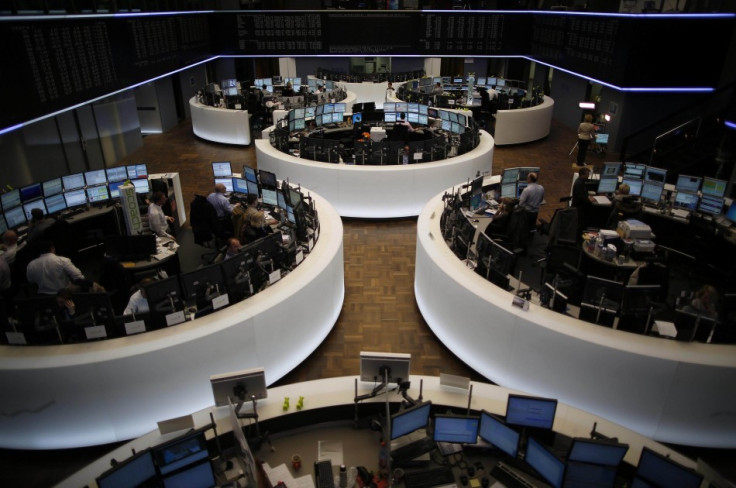European Stocks Open Lower after G20 Meeting [VIDEO]

European markets fell in the opening minutes of trade as investors remained cautious after the G20 meet, ahead of key economic indicators set for release during the week.
Europe's FTSEurofirst 300 index, tracking the region's top stocks, fell 0.1 percent to 1,159.87. The UK's FTSE 100 remained little changed at 6,326.31 while France's CAC-40 dropped 0.2 percent.
Italy's FTSE MIB and Spain's Ibex were down 0.4 and 0.6 percent respectively. Germany's DAX remained little changed.
The single currency eased against the dollar, trading at about $1.33.
Markets look set for a subdued opening to the week as Wall Street remains shut on a long weekend. Traders are awaiting a number of economic indicators from the euro area for early first-quarter growth signs after the disappointing fourth-quarter GDP figures. Data set for release in the eurozone during the week include the flash purchasing managers' (PMI) index, German ZEW and IFO releases and the European Central Bank's (ECB) winter 2013 economic forecasts.
Italian political developments remain in the spotlight in the final week of campaigning before the austerity-hit nation goes to the polls on 24 and 25 February. Reports suggest the centre-left leader Pier Luigi Bersani is the front runner, in a contest that could prove crucial to the eurozone's economic recovery efforts.
Traders are also awaiting the US Fed's latest meeting minutes for FOMC members' opinions on the current asset purchase scheme.
Asian markets ended mixed earlier, with Japanese stocks scaling fresh heights after the yen returned to its weak run following the G20 finance ministers' meet in Moscow.
The Nikkei average index traded 2.09 percent up to 11407.87 while Australia's S&P/ASX 200 was up 0.59 percent or 5063.40. South Korea's KOSPI added 0.04 percent to 1981.91.
China's Shanghai Composite Index fell 0.45 percent to 2421.56, opening after the Chinese New Year holidays. Hong Kong's Hang Seng slipped 0.24 percent to 23388.73 towards close.
The G20 summit over the weekend had brought the 'currency wars' in focus, especially with the yen's weakness. Traders and analysts had widely expected Japan to be on the receiving end of the group's criticism after the Shinzo Abe-led government's recent stimulus moves that weakened the local currency against its peers.
But in a move that surprised many, the G20 refrained from singling out Japan while agreeing against resorting to currency devaluations aimed at a competitive edge. Although this suggests that Japan's aggressive measures have received a silent go-ahead from the group, analysts point out that the government may be forced to limit its verbal guidance for the currency's direction.
"For Japan to push the JPY lower from here, we think that officials will need to execute their proposed monetary/fiscal policy actions (and to a greater extent than already priced in) rather than relying on verbal guidance," said Adarsh Sinha, FX Strategist at Bank of America Merrill Lynch in Hong Kong.
"This may well work over the medium-term but in our view increases the downside risk to USDJPY during the policy vacuum over the next month".
The ministers' stand weighed the yen lower against the dollar and the euro on further monetary stimulus optimism, boosting the benchmark stock average index higher.
© Copyright IBTimes 2025. All rights reserved.




















